“A LOT OF people are not informed enough about HIV; there is still a stigma around it in most communities,” says Ka Ming Wong, founder of Mission for Ethnic Minorities’ Sexual Health (MESH). “Most HIV-positive individuals face discrimination, despite there being steps an infected person can take to allow them to live with the virus safely.”
Since 2017, MESH – one of the service teams under AIDS Concern, a non-governmental charitable organisation committed to acquired immunodeficiency syndrome (AIDS) care in Hong Kong – have been addressing cases of human immunodeficiency virus (HIV) and other sexually transmitted infections (STI) amongst the migrant worker and ethnic minority communities in the city.
Maria Tahir, prevention officer at MESH, shares the challenges that migrant workers may encounter having tested positive for HIV, “Getting news that an individual is HIV positive is difficult for most people to hear. There are often feelings of guilt, shame, regret, and fear – the fear of rejection from loved ones, termination from their employment, and concern for their own futures.”
Getting news that an individual is HIV positive is difficult for most people to hear. There are often feelings of guilt, shame, regret and fear - Maria Tahir, MESH prevention officer
Acknowledging the dilemma faced by people in this position, MESH offers a comprehensive support system, which includes mediation between migrant domestic workers (MDW) and their employers, helping to reassure both sides that being diagnosed with HIV doesn’t have to lead to termination of an employment contract.
The NGO also hosts peer support groups, which provide an opportunity to connect with others in the community living with HIV, and help individuals better understand and navigate this new life without fear of judgement.
“Even in today’s modern society, getting an HIV diagnosis is still considered taboo. People who test positive still worry about the reaction of their husbands [or wives], partners, or friends,” says Ka Ming. Disclosing a positive diagnosis to past sexual partners and advising them to get tested themselves is something many find particularly challenging; MESH offers a range of services to assist their clients through this difficult process, such as advice on approaching these conversations, coping with potential fallout in a relationship, and recommending therapists for those in need of further support.
Sharing up-to-date and accurate information about the virus is the key to helping people understand that contracting HIV is not the death sentence it used to be. Advancements in antiretroviral therapy (ART) means that the viral load can now be brought down to very low levels, thus avoiding the weakening of the immune system which can lead to AIDS and other opportunistic illnesses.
In fact, through the prolonged and consistent use of antiretrovirals, it is now possible for HIV-positive individuals to suppress their viral loads to undetectable levels. If the virus cannot be detected through testing, it means it has reached a level where HIV can no longer be transmitted through sexual intercourse. However, MESH nonetheless advises to always practice safe sex.
Early testing means early treatment - Ka Ming Wong, MESH founder
To help disseminate information to the ethnic minority and MDW community, MESH run an ambassador programme called MESH Peers, where they train migrant workers on sexual health, outreach skills, HIV/STI knowledge, and peer training. These hard-working ladies join the regular MESH outreach team, visiting different locations around Hong Kong to give away bilingual booklets, free condoms, HIV self-test kits, and other gifts, and share helpful advice about safe sex practices. There are currently around 50 domestic workers volunteering their time as MESH Peers, helping the organisation move towards their mission of zero new HIV infections in Hong Kong.
“Early testing means early treatment. That’s why we encourage people to take our fully confidential self-tests if they suspect they have been exposed to HIV,” says Ka Ming. “HIV is not a punishment,” Maria adds. “We can get you the help you need.”


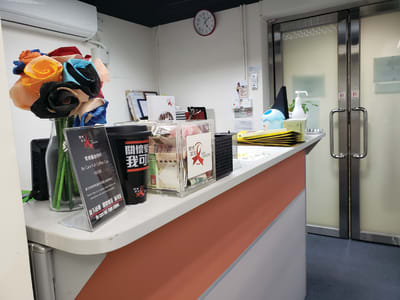







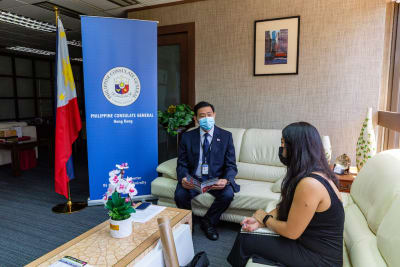















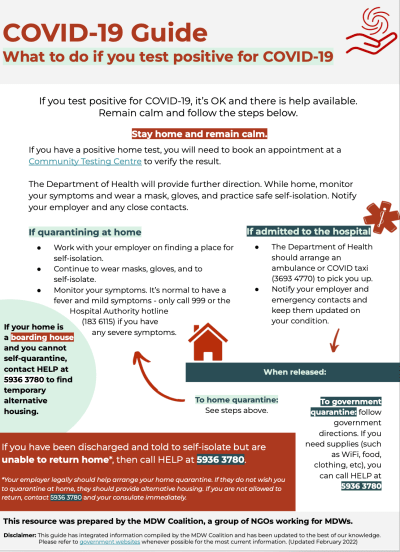



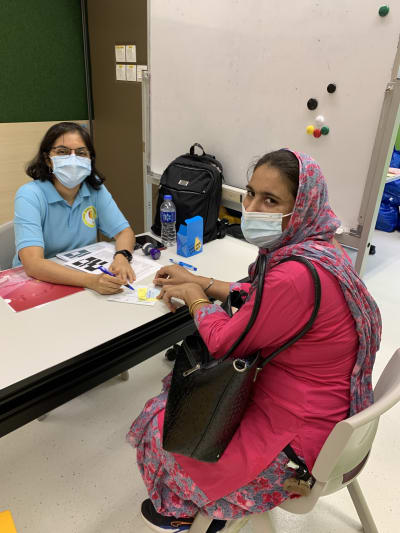





9dde49c3be6bac6166d59fb7abf39532)










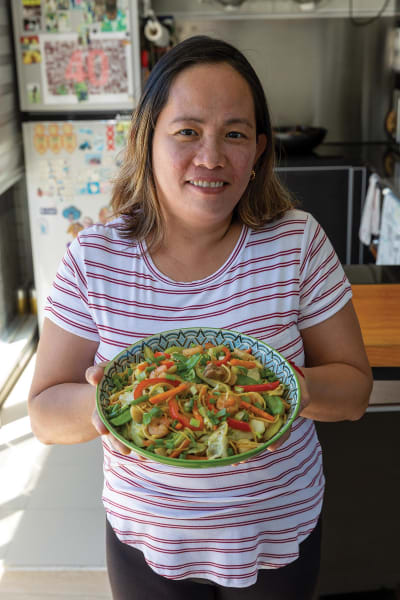





















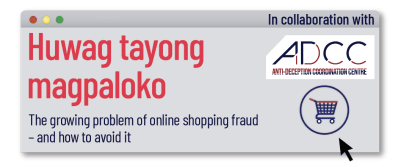

 (1)4b7355993ca6165c683913d00254e725)
6c2435b2dd0927f22b3222b88d21fb70)
